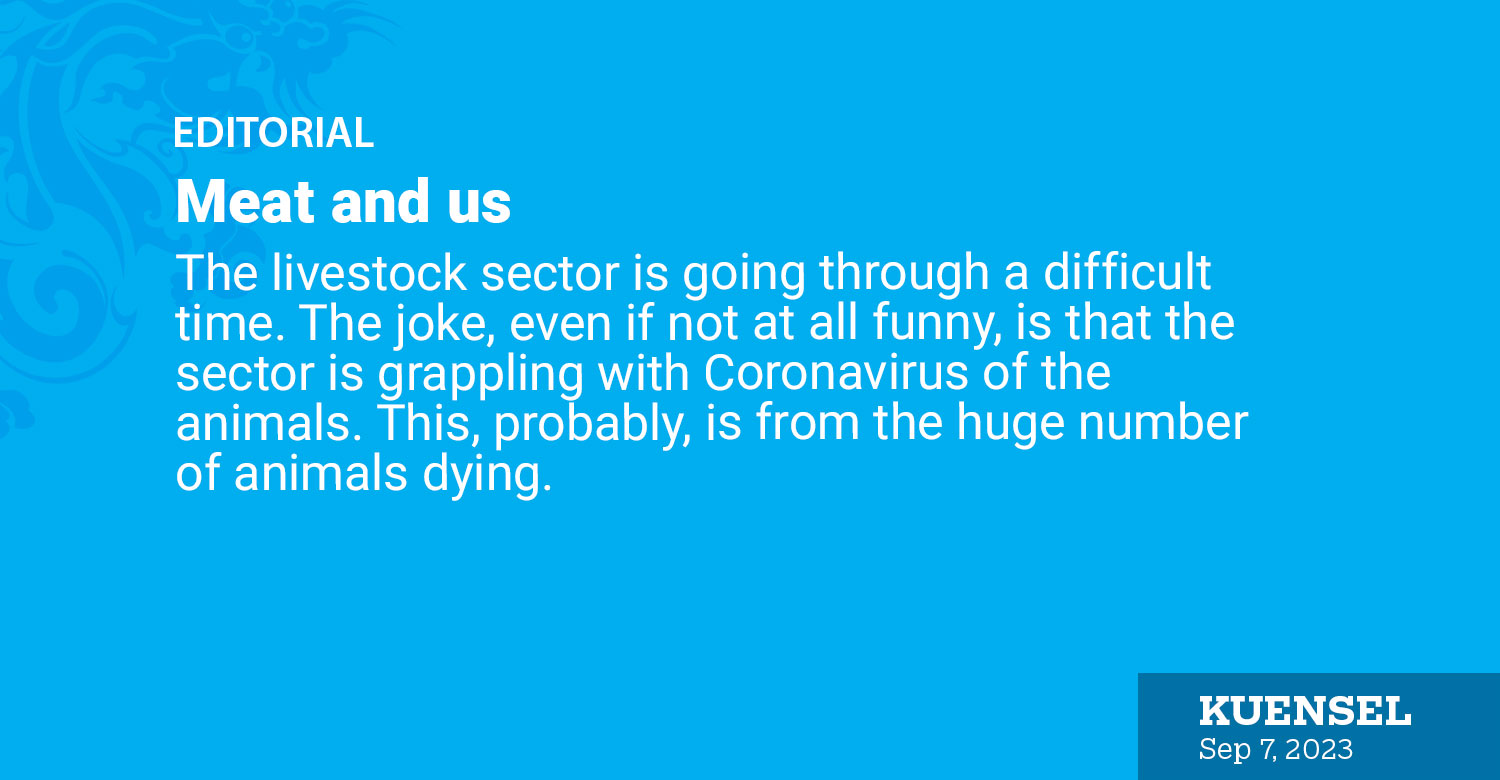The livestock sector is going through a difficult time. The joke, even if not at all funny, is that the sector is grappling with Coronavirus of the animals. This, probably, is from the huge number of animals dying.
As per records we have, 784 heads of cattle succumbed to the lumpy disease. Besides cattle, farmers and cooperatives had been losing chicken, about 12,000, 70 yaks to anthrax disease, and four to five thousand pigs were culled to prevent the spread of swine flu.
Meat, whether chicken, pork, or beef, is an integral part of our diet. We may not kill animals to eat, but we cannot live without them. With the blessed rainy day (thrue bab) and the festive season not far away, it is time to stock meat – all holidays have meat on the menu.
Our love for meat has repercussions on the trade balance. Even as our efforts are on food self-sufficiency, statistics show a sober food trade deficit. Last year, Bhutan imported food commodities almost five times the value of exports. The import of live animals, and animal products, which are classified into commodities like meat, fish, and dairy produce shows an import value of more than Nu 956M against the export value of around Nu 13M.
At this rate, forget the negative trade deficit, we will not be able to produce the common items on the list. While the normal unit of meat sold is in grams or kilograms, we have a different unit. It is by the body parts of the animal. It is either a kam (leg) lap (hand) or gep and phow (innards) of a whole animal.
We have the demand and the appetite for meat. The irony is that we believe we do not rear animals to be killed for consumption. The reality is that many stray animals end up at the slaughterhouse and on our plates. The source is not questioned, but when a Bhutanese company is tasked to fill the gap, it becomes a moral question.
The Bhutan Livestock Development Corporation (BLDC) is under a lot of stress. It is seen as unsustainable at the policy level, morally wrong going by our beliefs, and unsustainable from a business perspective. The state enterprise has a lot of scope and potential not only to become sustainable but offset our import bill.
What is needed is policy interventions and the belief that the meat we consume, whether slaughtered across the border or in our farms, comes from an animal. BLDC is under the scanner. Some of its operations are closed as it is seen competing with the private sector. However, the scope is there to make it not only a sustainable company but to offset the trade imbalance.
What could help is doing away with the hypocrisy at the consumer level and policy interventions to make it a viable business. Meat vendors and suppliers are thriving because they are not under the government’s radar. Right interventions could help BLDC to be sustainable and the meat-hungry Buddhist Bhutanese to have enough meat on the plate – dry, smoked, or a fresh bull’s leg to be dried or served fresh.


